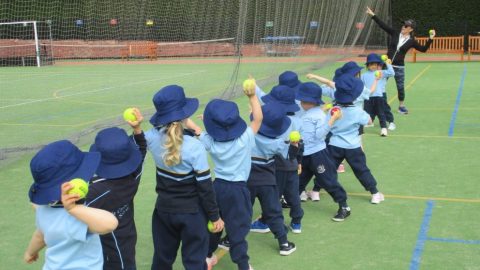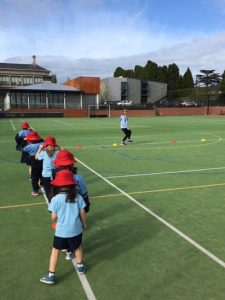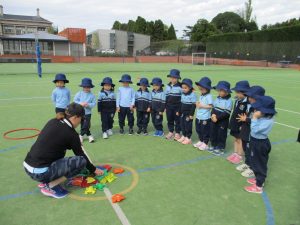The Importance of Physical Activity

The early learning program at St Catherine’s supports the children’s physical learning and development through a range of play and learning opportunities.
As outlined in our curriculum framework, the Early Years Learning Framework for Australia, educators support children’s learning so that over time they work towards Learning Outcome 3.2 “Children take increasing responsibility for their own health and physical wellbeing.”
With the spring weather upon us, this is the ideal time of year for the children to be spending increased time in the outdoor program. Our Early Learning Centre (ELC) playground provides the children with a physical challenge every time they encounter this space. The children are required to develop the skills to traverse rocks and a range of surfaces. They are required to move in different directions and step up and down as they navigate the pathways within the space. The children exercise a range of physical skills when climbing, digging, swinging, riding, engaging in ball games and building with blocks and other materials. Through regular experience in this naturally challenging learning space, the children are constantly developing and refining their physical skills.

The children in the St Catherine’s Early Learning Centre have recently commenced the outdoor Physical Education program.
The children in the ELC have recently commenced the outdoor Physical Education program after previously completing two terms of the Perceptual Motor Program in the School gymnasium. This program provides the children with the opportunity to use sporting equipment and explore the space on the sports field. The children engage in a range of whole group and team games led by our Physical Education Teacher, Mrs Jenny De Nardis. The outdoor physical education program is designed to develop the children’s coordination, balance, agility, spatial awareness, ball skills and team work. The children also gain skills in running, jumping, skipping and hopping. In addition, the children are required to listen to instructions and follow rules and directions while participating in these group sessions.

The outdoor Physical Education program provides the children with the opportunity to use sporting equipment and explore the space on the sports field.
The importance of physical activity extends beyond the obvious benefits to a child’s physical development. Studies have found favourable associations between the time children spend in active play and their management of their own behaviour and how well they get along with others. There are also correlations between physical activity and a child’s ability to concentrate and focus in the classroom. The relaxation and wellbeing benefits are significant. For these reasons, we must make physical play and activity a priority in both the School and home settings.


